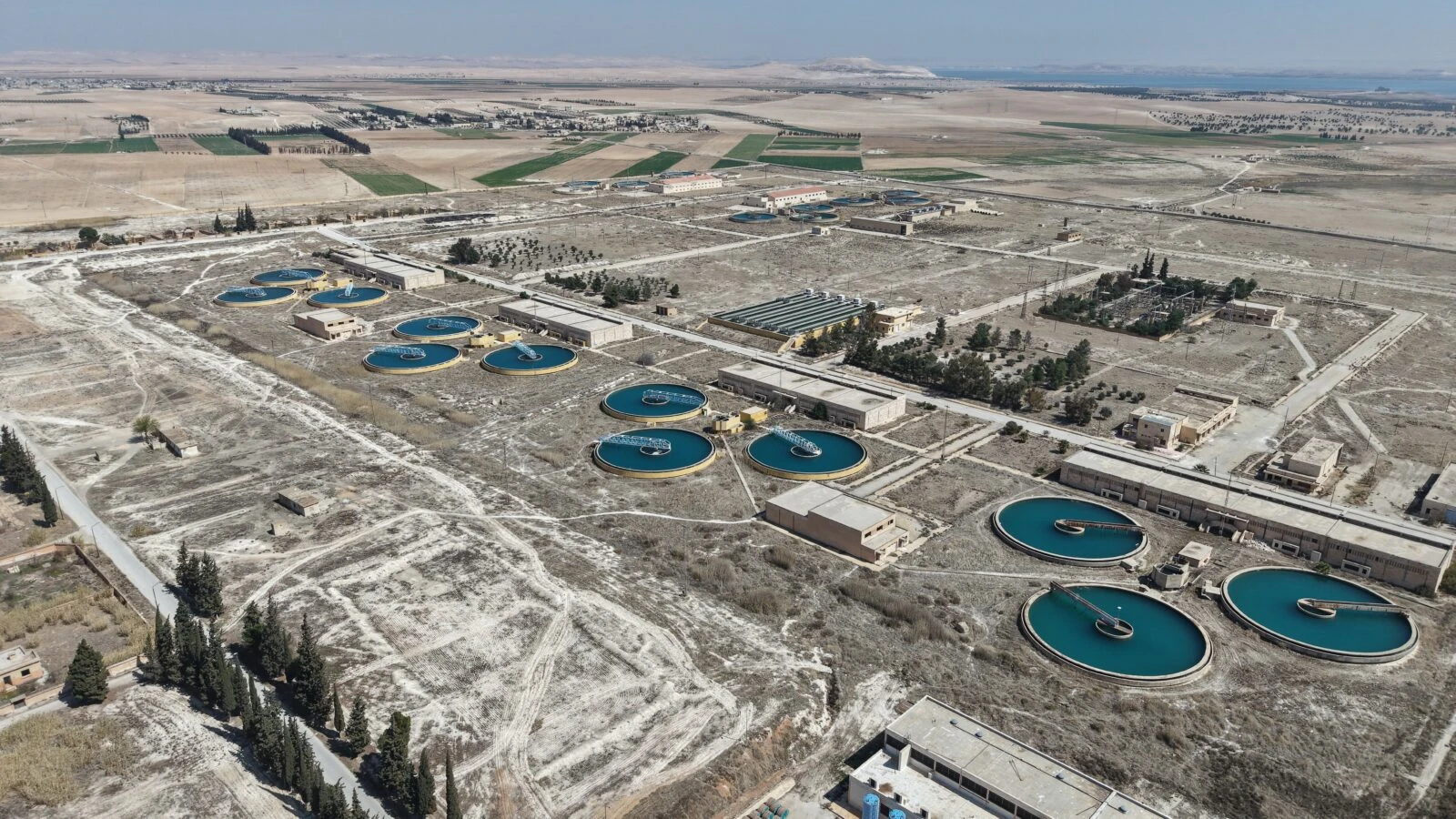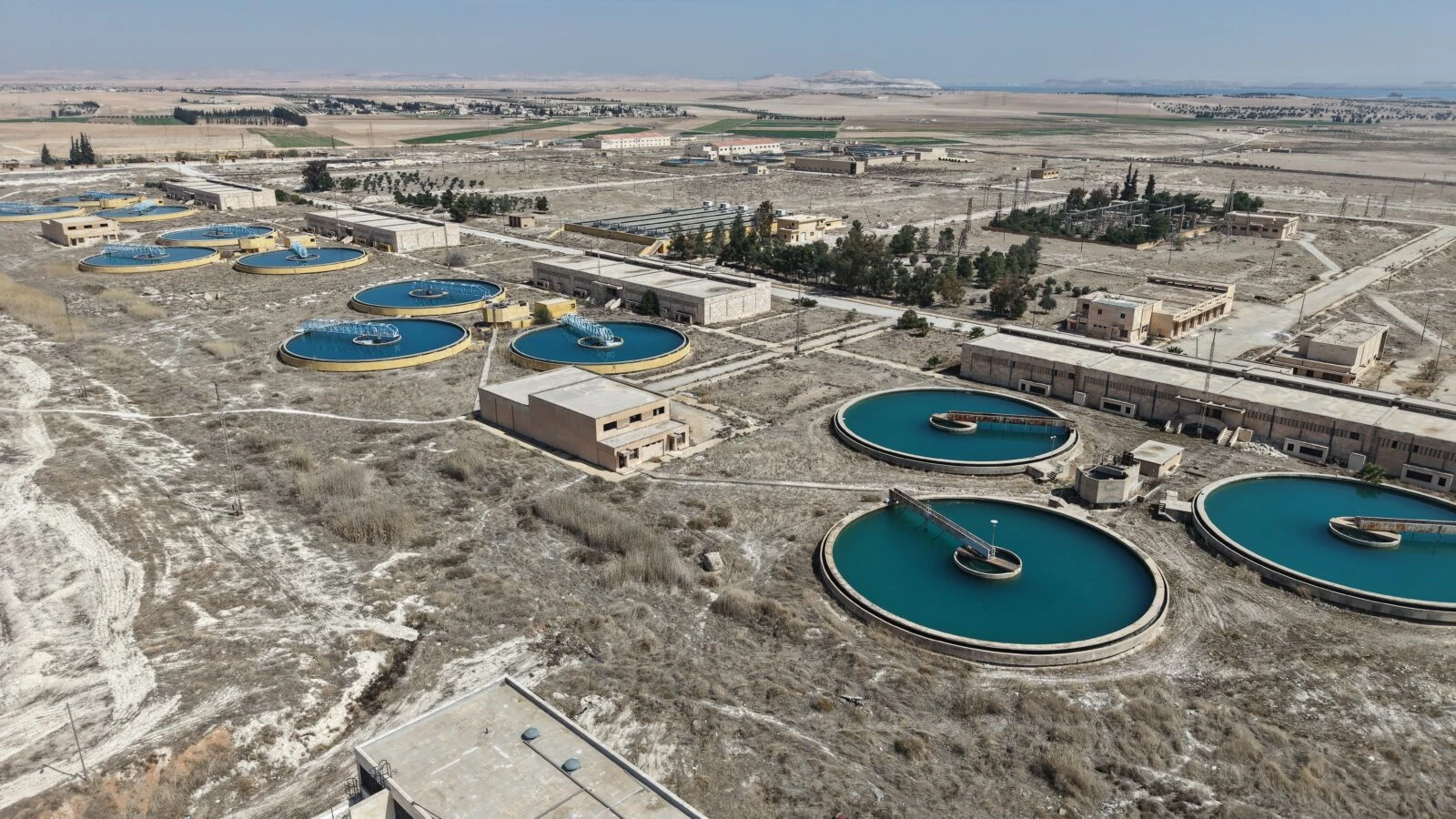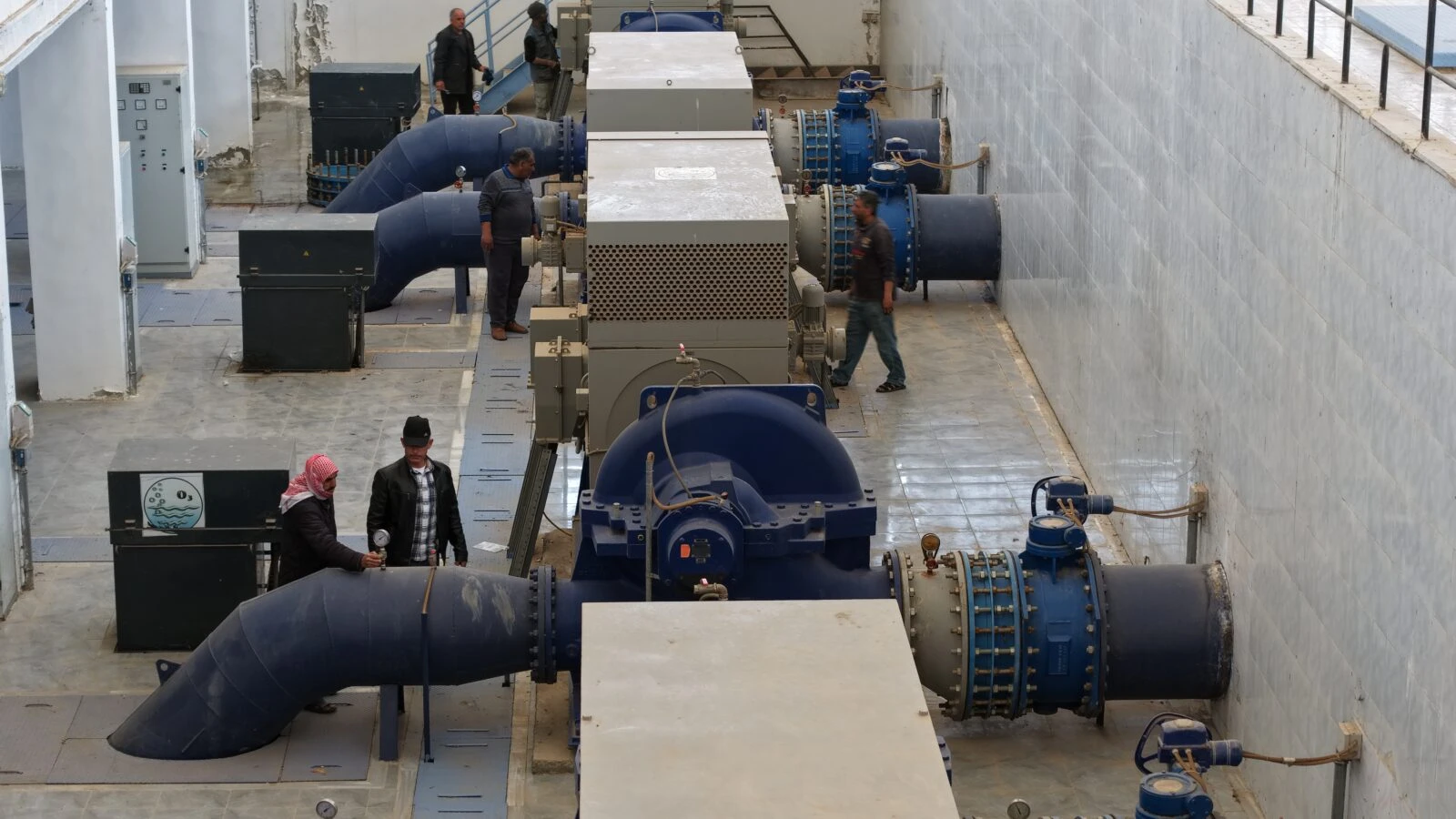Aleppo water station restored after PKK/YPG attack to supply 3M people
 Aerial view of the water facility which was bombed and destroyed by the terrorist organization PKK/YPG in Hafse region of Aleppo, Syria on March 24, 2025. (AA Photo)
Aerial view of the water facility which was bombed and destroyed by the terrorist organization PKK/YPG in Hafse region of Aleppo, Syria on March 24, 2025. (AA Photo)
A key water station in Aleppo province, which was severely damaged by the PKK/YPG terrorist organization, is undergoing repairs to resume its critical role in supplying water to nearly 3 million civilians in both the city and surrounding rural areas.
The water station, located in the northern rural district of Hafse, was targeted multiple times by drone and rocket strikes between December and January.
The attacks resulted in significant damage to the second water treatment facility, and two civilians lost their lives in the assaults.
As a result of the damage, the station is currently operating at only 40% of its capacity, providing limited water to Aleppo’s residents.
Restoration efforts underway after agreement
Following the damage, the restoration efforts began after an agreement was signed on March 10 between Syrian President Ahmed al-Sharaa and Mazlum Abdi Sahin.
Aselsan, a Turkish company, is assisting with the repair and rehabilitation of the station, which aims to restore normal water pumping capacity.
The project is expected to significantly improve the availability of clean water to the people of Aleppo.

Engineer insights: Challenges and progress
Engineer Hasan Hacci, who is involved in the repair process, provided additional details about the water station.
Hacci explained that the station consists of three treatment facilities and that the PKK/YPG’s attacks had targeted the main structures using drones and rockets. “Two facility workers lost their lives in the attacks,” Hacci noted. “The water treatment center sustained serious damage.”
Hacci added that Hafse Water Station is a major supplier of water to Aleppo and Manbij, but because of the damage and ongoing conflicts, the station’s capacity has dropped significantly.
“The water pumping rate has decreased to around 60%. Despite the shortage of spare parts, access challenges for repair teams, and ongoing security risks, we have continued our work,” Hacci said.

Restoration progress, expected outcomes
After the agreement on March 10, repair teams gained access to the station, allowing for faster progress. “We’ve been able to bring in the necessary spare parts more easily, and the repair process is accelerating,” Hacci explained.
He also mentioned that the entire facility is now undergoing restoration with the support of local nongovernmental organizations (NGOs) and state institutions.
The project is expected to be completed soon, and water pumping operations will become more efficient, benefiting the local population.

Improvement in water supply to Aleppo
Engineer Sheher Ahmed, working at the main treatment facility in Aleppo city, highlighted the improvements in water supply.
“Currently, we are providing around 13,500 cubic meters of water per hour to the city,” Ahmed stated.
He noted that after the agreement, maintenance work on all related projects is ongoing, and the water supply rate to Aleppo is expected to rise in the coming period.
“After the next phase of maintenance, we plan to extend the water supply to Manbij as well,” Ahmed added.



